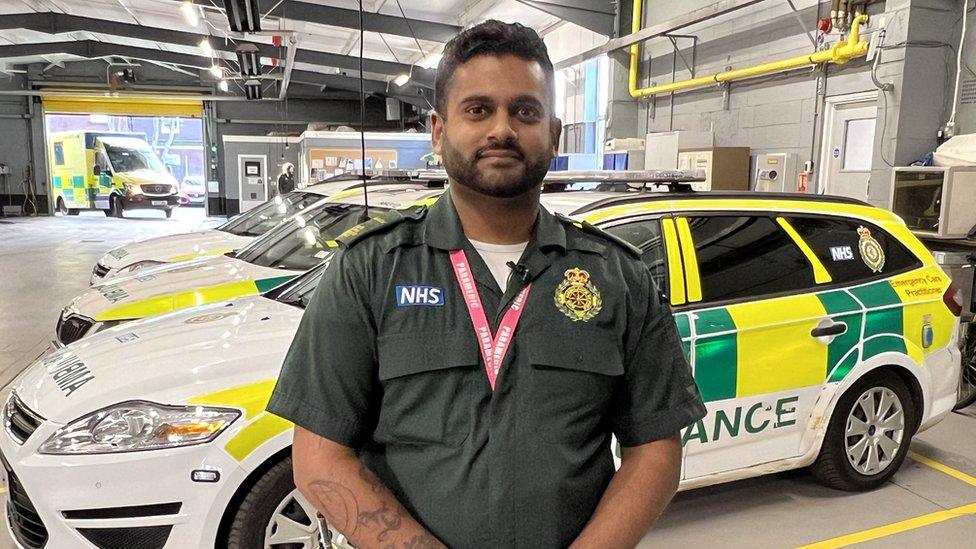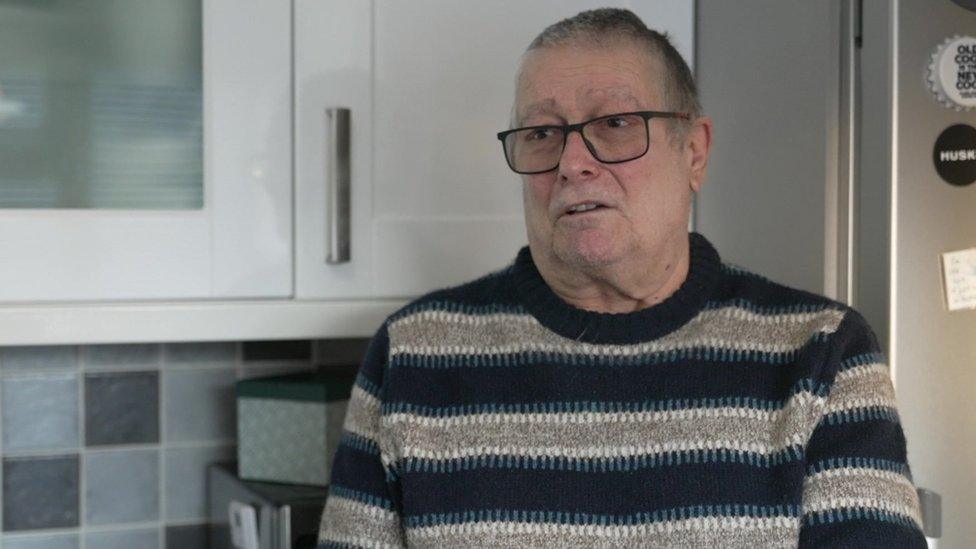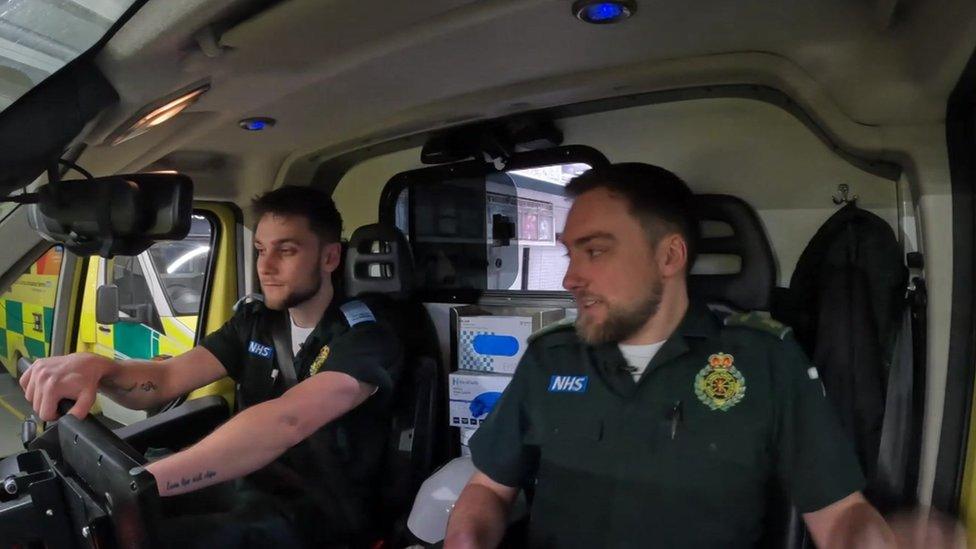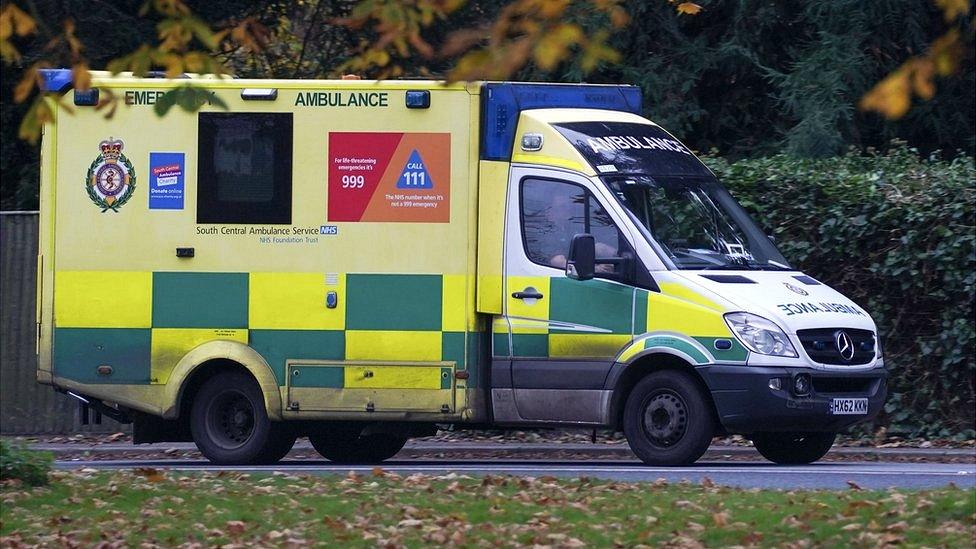New ambulances for under-pressure service in south of England
- Published

Specialist practitioner Bryn Umapalan believes filling vacant staff roles would also make a big difference
The first of more than 50 much-needed new ambulances are set to arrive in the south of England this month.
South Central Ambulance Service (SCAS), which covers Hampshire, Oxfordshire, Berkshire and Buckinghamshire, has been under extreme pressure in recent times.
About a quarter of its cars and vans are currently off the road.
Problems are exacerbated with about 22% of its roles vacant, which means relying heavily on bank staff, overtime and help from private providers.
SCAS has been battling a steep rise in seriously ill patients requiring an ambulance in the past five years, increasing from 30,748 in 2018-2019 to 41,348 in 2022-2023.
The BBC has spent time with the service to see the challenges.
Specialist practitioner Bryn Umapalan is trained to care for the seriously ill on the road and with rising ambulance delays at hospital as well as increasing pressure on beds, his type of role is seen as key to the solution, doing what they can to avoid people having to go to A&E.
Following him for the day, his first call-out is to a 72-year-old woman with abdominal pain in Bracknell, Berkshire.

David Sumner has needed the service twice this year already after his wife started experiencing abdominal pain
David Sumner's wife Susan has been up all night in "complete agony".
"The service is really good, it's the second time this year that we've had to get an ambulance out and they've been within an hour at the most," he said.
In this case Mr Umapalan explains Mr Sumner's wife has "sudden onset abdominal pain but there was no real obvious cause" and it is decided the couple make their own way to hospital for further investigation.
The specialist paramedic believes more staff would also help solve some of the issues.
"There's staffing shortages across the NHS, there's funding issues, and equipment issues.
"People are living much longer with more complex diseases, we need to be able to respond to that and have the infrastructure in place to help support all these people," he explained.
"[But] we get to see some of the amazing sides of humanity and get to do some amazing things."
A Department of Health and Social Care spokesperson said: "There are record numbers of staff working in the NHS and our historic Long Term Workforce Plan, backed by over £2.4 billion, will train, retain, and recruit hundreds of thousands more staff - including boosting the number of paramedics by up to 15,600.
"Our work... is helping to improve ambulance response times with average Category 1 and Category 2 response times this year to date significantly quicker compared to last year.
"We have already created 5,000 extra permanent hospital beds, on top of 10,000 hospital at home beds rolled out - to free up hospital capacity and cut waiting times."

Follow BBC South on Facebook, external, X, external, or Instagram, external. Send your story ideas to south.newsonline@bbc.co.uk, external
- Published22 February 2024

- Published26 January 2024

- Published25 January 2024
